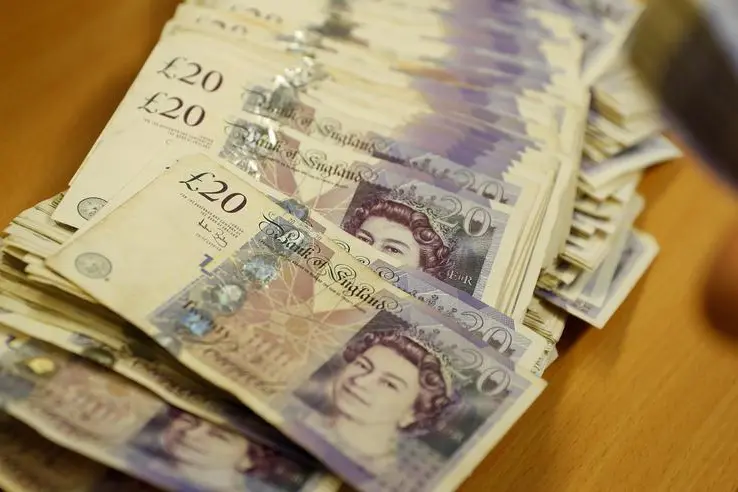PHOTO
LONDON - Britain's pound looked set for a second weekly rise and was close to a one-month high on Friday, helped by a large government spending package to support households and which economists said should support the economy in the short term.
The government on Thursday announced a 25% windfall tax on oil and gas producers' profits to help fund a 15 billion pound ($18.9 billion) package of support for households struggling to meet soaring energy bills.
Reaction on currency markets was muted, but analysts said signs of government support, which was mostly targeted at lower-income households, could lift sentiment towards sterling which has rebounded this week versus the dollar after falling to a two-year low earlier this month.
Sterling's rebound has also been aided by a broad reversal in the U.S. currency, while the UK currency's performance against the euro has been much weaker in recent sessions.
By 0800 GMT, the pound was 0.1% higher at $1.2618 after earlier reaching $1.2666. It is on course for a 1% gain this week.
Versus the euro, sterling was marginally higher at 85.06 pence but that followed a fall on Thursday.
"If the passthrough of looser UK fiscal policy... is marginally tighter monetary policy - as a number of forecasters have hinted at - then the current composition of inflation (largely imported) gets leant into by a stronger pound, all else equal," said Simon French, chief economist at Panmure Gordon.
MUFG analyst Derek Halpenny said the package unveiled this week would help cancel out the hit to real incomes from an expected energy bill rise in October. He expects this will likely lead the Bank of England to modify its recent "very grim forecasts" that predicted no growth through the rest of this year and a contraction in the fourth quarter and in 2023.
The Bank of England might therefore be encouraged to raise interest rates further than the two 25 basis point hikes MUFG expects, Halpenny said.
But with 125 bps of hikes priced in for 2022 he doubted this week's package would raise rate rise expectations, meaning "the impact on the pound will be marginal".
(Reporting by Tommy Wilkes; Editing by Susan Fenton)





















